By David H. Lippman
Sir Alexander Cadogan did not believe it.
He had been given a report from Admiral Sir Archibald “Quex” Sinclair, head of MI6, on October 6, 1939, that German generals were reaching out to the British Embassy in The Hague in neutral Holland, to orchestrate a coup against Adolf Hitler that would replace the Nazi regime with a military junta, which would then make peace.
During the “Phoney War,” when the only combat action consisted of German U-boats and surface raiders on the high seas and propaganda bombast, British Prime Minister Neville Chamberlain was eager to keep the new war from becoming worse and repeating the horrors that had taken family members from 1914 to 1918. An internal German coup to remove Hitler from power would do the trick.
However, while most of the War Cabinet was impressed by the apparent feeler, First Lord of the Admiralty Winston Churchill was not. Neither was British Undersecretary for Foreign Affairs Alexander Cadogan, who wrote in his diary for the day, “(Menzies) has a report on interview with his German General friends. I think they are Hitler agents.”
Despite these objections, London ordered two spies in The Hague, nominally assigned to the Passport Control Section, with the sonorous names of Captain Sigismund Payne-Best and Major Richard Henry-Stevens, to meet with a “Major Schaemmel” of the German Army, who was allegedly a link to disaffected Wehrmacht generals.
In actuality, “Schaemmel” was Secret Police Major Walther Schellenberg, a cynical, scar-faced (from university dueling) protégé of SD head Reinhard Heydrich. Born in Saarbrücken, Schellenberg’s family was forced out of their home by the Belgian postwar occupation. He studied law at university and entered civil service. When he realized he could gain more power and prestige by becoming a Nazi, he joined the Party and the SS in the wave of Germans who did so after Hitler took power.
Schellenberg wanted to become head of the SD Intelligence arm. Heydrich thought Schellenberg better suited for counterintelligence. He handled security for Benito Mussolini’s 1937 visit to Berlin, gaining kudos for protecting the two dictators. His evaluations were outstanding, his anti-Semitic statements, though, pro forma. He also angrily divorced his wife to marry a socially more desirable woman.
Schellenberg proposed luring British spies in The Netherlands to a place where they could be captured in a covert action, brought back to the Reich, and gain the list of British agents in Germany. Schellenberg’s idea appealed to Heydrich, who was a big fan of spy-novel feats of derring-do. He ordered Schellenberg to proceed with the plot. Disguised as a German Army transportation corps officer, he met with the two Britons, along with Dr. Franz Fischer, another SD agent masquerading as the leader of an anti-Hitler coalition.
Both sides met in the Backus Café in Venlo, on the Dutch-German border, several times, culminating with a discussion at 2 p.m., on November 7.
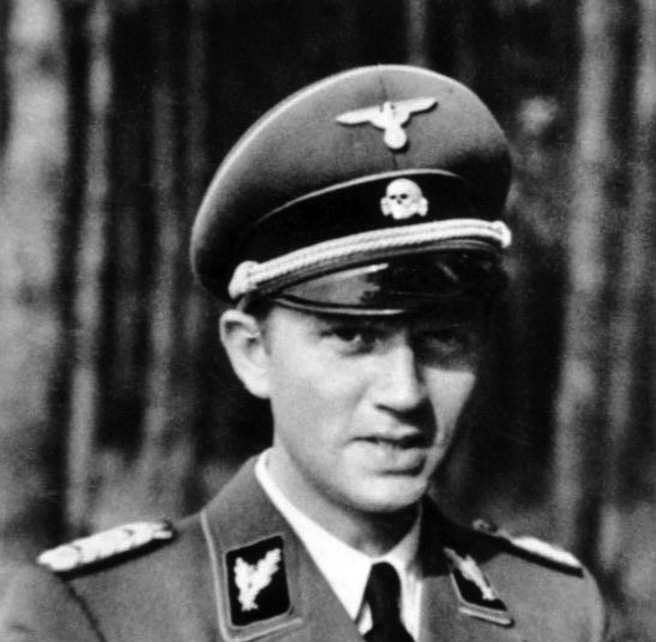
Schellenberg’s story was that, as “Schaemmel,” he represented an underground group headed by a German general, who was ready to fly to London for high-level discussions with Chamberlain and his Cabinet. The British should have a plane to fly the fictional general from Schiphol Airport at Amsterdam to London. The British agreed. Schellenberg headed back to Düsseldorf, hoping for orders from Berlin on what to do next.
However, there weren’t any. Apparently, Hitler was indecisive about what to do next, and nervous about discussing his possible overthrow, even if the “plot” was bogus. Perhaps Der Fuehrer didn’t want to give anyone any ideas. Schellenberg decided to go ahead on his own; aware that the big attack on the West was set for November 14. Removing two major British spies from the espionage chessboard would be a great benefit to the offensive.
With that, Schellenberg went to bed, but was unable to sleep.
Next morning, November 8, when Schellenberg woke up in Düsseldorf and read the morning newspapers, he saw an announcement by the Dutch and Belgian monarchs offering mediation to both sides.
For Schellenberg, this solved a problem. The news about the monarchs allowed him to tell the British that the German “resisters” were waiting to see how Hitler reacted to the Dutch-Belgian proposal, and that the “general” was sick anyway, and couldn’t come.
With that, Schellenberg drove to the café and sat there, swirling his tea for three-quarters of an hour, noticing, he later wrote, that he was being watched by “several persons pretending to be harmless civilians.” He figured that the British were now growing suspicious.
The British spies finally arrived, and they held a short meeting. Schellenberg told his tale, and the British believed it, both sides heading off with warm cordiality.
When Schellenberg returned to Düsseldorf, a senior SS officer, Alfred Naujocks, was there to greet him. Apparently, Berlin backed Schellenberg’s play.
Naujocks was in charge of a special detachment to protect Schellenberg. He was a familiar name and reliable SS heavyweight. Naujocks had staged the September 1939 Gleiwitz radio station incident that provided Germany with an excuse to invade Poland. Berlin was worried that the British might be planning their own kidnap trick on Schellenberg. The SS would block off the entire sector of the frontier and cover all Dutch border police in the area to prevent Schellenberg’s arrest or capture.
Schellenberg told Naujocks that he may have to drive off with the British agents tomorrow, so if he did so voluntarily, he would give the
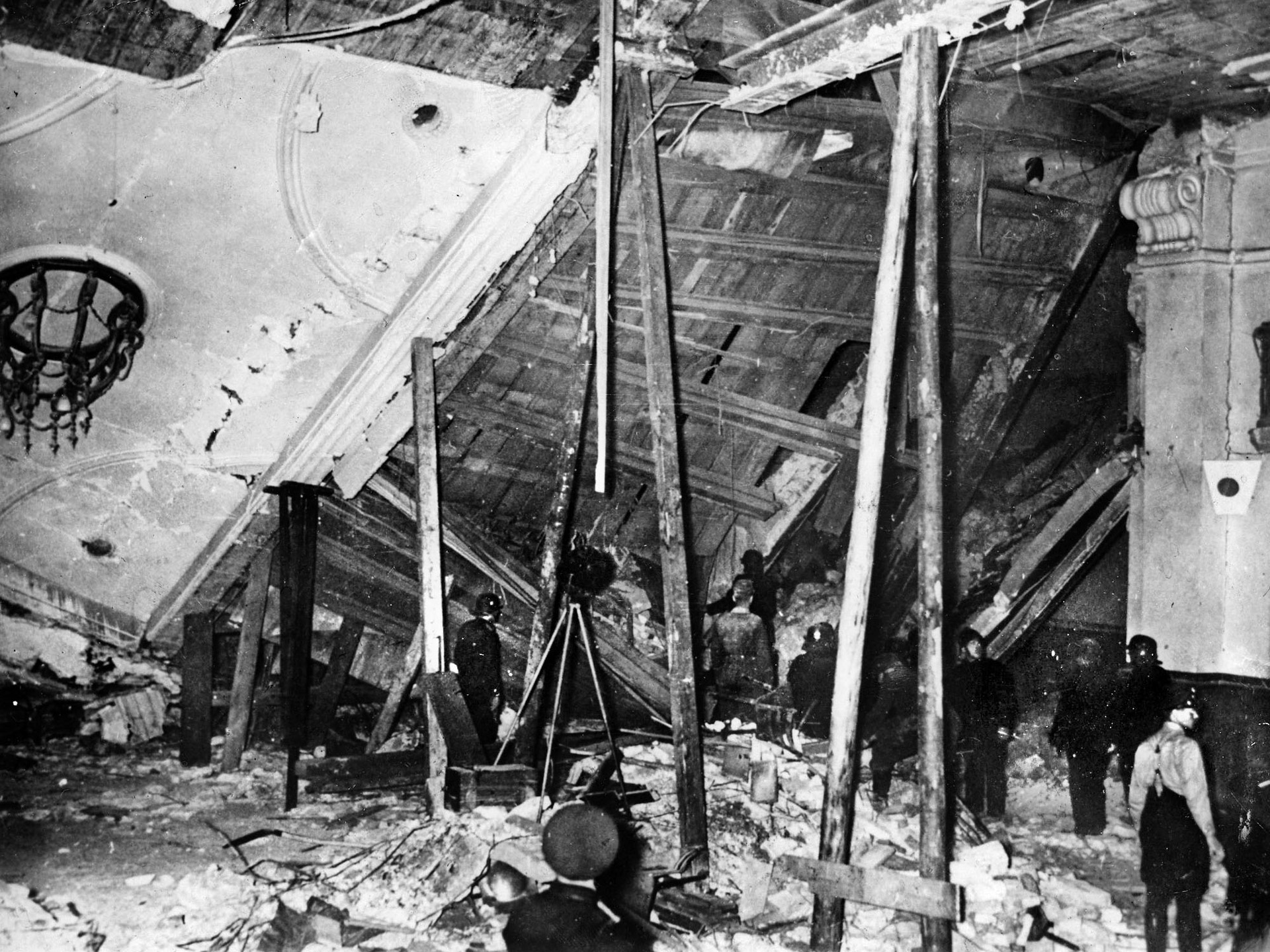
SS guards a signal. Naujocks promised to
bring along an escort of his best men to protect Schellenberg.
With that done, Schellenberg discussed the plan for the kidnap the following day with Fischer, going over all the details. It was midnight before Schellenberg went to bed, taking a sleeping pill to put him out.
Early on November 9, the imperious ringing of a telephone woke up the semi-comatose Schellenberg from his hotel bed. Struggling against the effect of the sleeping pill, Schellenberg grunted into the phone, “Hello.”
A deep and excited voice at the other end said, “What did you say?”
“Nothing so far,” responded Schellenberg. “Whom am I speaking to?”
“This is the Reichsfuehrer SS, Heinrich Himmler. Are you there at last?” came a sharp reply.
Now Schellenberg was quite awake. Himmler continued, “Do you know what has
happened?”
“No, sir,” Schellenberg said. “I know nothing.”
“Well this evening, just after the Fuehrer’s speech in the Bürgerbraukeller, an attempt was made to assassinate him! A bomb went off. Luckily, he’d left the cellar a few minutes before. Several Party comrades have been killed and the damage is pretty considerable. There’s no doubt that the British Secret Service is behind it all. The Fuehrer and I were already on his train to Berlin when we got the news. He now says—and this is an order—when you meet the British agents for your conference tomorrow, you are to arrest them immediately and bring them to Germany. This may mean a violation of the Dutch frontier, but the Fuehrer says that’s of no consequence. The SS detachment that’s been assigned to protect you—which, by the way, you certainly don’t deserve, not after the arbitrary and self-willed way you’ve been behaving—this detachment is to help you carry out your mission. Do you understand everything?” Himmler roared.
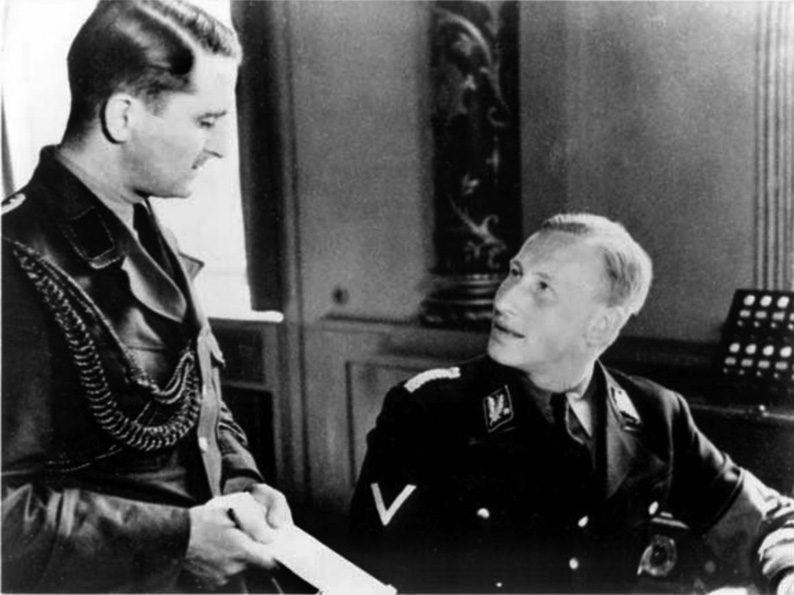
And indeed, except for the idea that the British were behind the bombing, the Reichsfuhrer’s report was quite accurate. A German who opposed Hitler, named Georg Elser, had spent weeks digging a hole in the supports of the legendary Munich Bürgerbraukeller, where Hitler had launched the failed Beer Hall Putsch on November 8, 1923. To mark that date, Hitler and his Alte Kämpfer cronies gathered annually for a night of Nazi oratory, German lager, shouting “Sieg Heil!” and “Jawohl,” and oompah music.
The only differences between this event and previous ones were two: first, Hitler and his entourage left early to head back to Berlin and making plans to invade France. Second, shortly after they did so, the bomb went off, killing a considerable number of people, wrecking the beer hall, and setting off Gestapo paranoia. In their eyes, all of Germany was behind Der Fuehrer, so this had to be the work of the British Secret Service, despite all evidence.
The Gestapo arrested Elser shortly after, and he insisted that he was the sole plotter and bomber, but Hitler, Himmler, and Heydrich did not believe that. This bombing made it more important to capture the two British agents at Venlo.
As Schellenberg absorbed all this news, he said, “Yes, Reichsfuehrer, but….”
Himmler cut his subordinate off. “There’s no ‘but.’ There’s only the Fuehrer Order—which you will carry out. Do you now understand?”
“Schellenberg merely replied, “Yes, sir,” writing later that he knew it would be senseless to argue the situation.
Fully awake now, Schellenberg roused Naujocks and put him in the picture.
Naujocks and his second-in-command were doubtful that the two Britons could be kidnapped without alerting the Dutch border guards, which would in turn set off shooting. That would in turn cause casualties and a potentially embarrassing international incident. The only German advantage was surprise. The best time to attack was when Best’s Buick arrived. At that instant, the SS cars would break through the Dutch border barrier, yank the Britons out of their car, hurl them into the German vehicles, and high-tail it for the Reich. The top German driver was highly skilled at driving in reverse, so he wouldn’t even have to turn his car around.
The SS men told Schellenberg he should just not take part in the attack, but wait in the Café Backus and walk out into the street to greet them. Then he should jump in his own car and drive off. It all sounded like a good plan to Schellenberg.
Stevens and Payne-Best, joined by Dutch Army Lieutenant Dirk Klop, headed for their conference with the German emissaries at the Café Backus in Venlo, right on the German border, on a dull, cold, day. Klop had joined the British but took no part in the negotiations, only to enable the Britons to go through the Dutch frontier defenses to the borderline café. While the Britons negotiated, Klop stayed to the side. Fearing the worst, the British spies took Browning pistols with them.
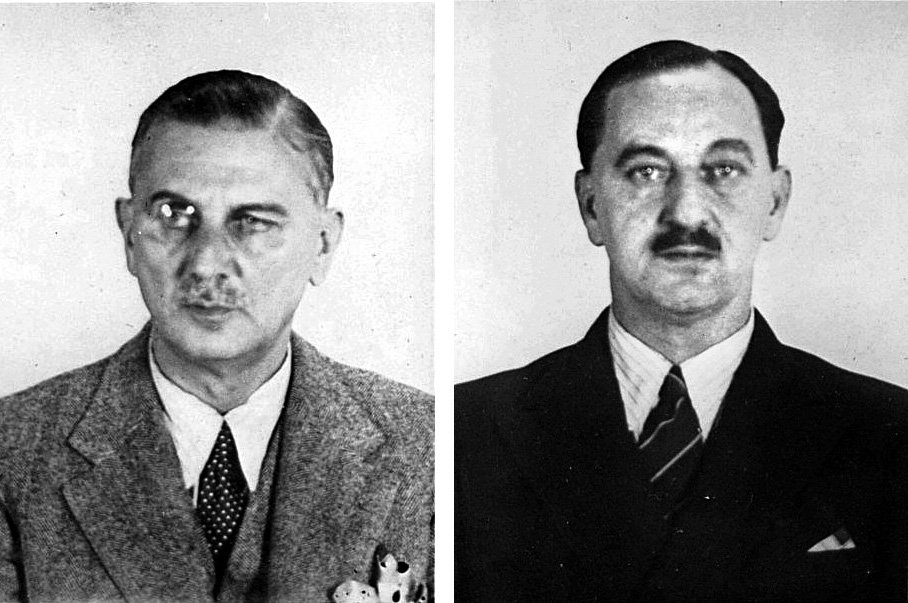
The German party headed off, their car’s trunk (or boot) loaded with pistols. Naujocks observed that the Dutch border was lined with coils of rusty barbed wire and concrete anti-tank blocks.
The British drove to the rendezvous in a Lincoln-Zephyr, driven by a Dutchman, Jan Lemmens, to await “Major Schaemmel.” Payne-Best thought it was odd that the German Customs barriers were open—since the war’s outbreak, they were usually closed.
Schellenberg was already waiting for them, sipping his aperitif. While waiting, the German spy noticed a lot of cyclists in the street and men walking police dogs. He suspected the British had arranged for protection.
The British arrived at the café at 3 p.m. and sat in their car, awaiting the meeting: the Britons in front, the Dutch in back. At 3:20, they finally emerged from their car and walked toward the Café Backus, Schellenberg in turn exiting the café to greet them. He waved toward the German cars, signaling them to make their move.
Moments later, Naujocks and his crew roared up from the German side in two Mercedes limousines and opened fire on the Lincoln-Zephyr, mortally wounding Klop. Despite his wounds, Klop fired back at the Germans, a bullet shattering the German car’s windshield. Schellenberg thought that Naujocks has been hit. But Naujocks, unhurt, leaped from his car, pistol drawn, and shot at Klop, who kept firing as he fell to his knees, even though Schellenberg was between them.
“Will you get the hell out of this?” Naujocks yelled at Schellenberg. “God knows why you haven’t been hit!” Schellenberg ran around the corner toward his car, with alacrity, reaching the vehicle to make his own great escape.
Naujocks yelled at the British spies in English, “Hands up. You have no chance.” The stunned Britons raised their hands and the Germans handcuffed the captives.
Stevens said to Best, “Our number is up.” These were the last words the two exchanged for the next five years, as they were held in separate captivity in concentration camps.
Naujocks yelled, “Right, march! Hurry up!” The Germans hurled their captives into their limousines and raced back to the Fatherland in best gangster-movie fashion. Dutch civilians watched this spectacle in amazement and fear—a little girl cowered in a nearby garden, clutching a black dog. The Germans drove back for Düsseldorf in silence.
Once there, the SS men searched their prisoners, and one of them told Best that the Britons were seized because the SS believed they were connected to Elser’s plot. Klop went to the Protestant Hospital in Dusseldorf, unconscious and dying of a head wound.
The Germans found no evidence that Payne-Best and Stevens had any connection with Elser. They did find an uncoded list of Britain’s SIS agents throughout Europe, which was of greater value. Payne-Best had written it down, expecting to provide it to “Schaemmel,” so that the false anti-Nazi organization could connect with MI6. Now the Germans had a list of every British spy in the Reich. They swiftly rounded up the whole lot.
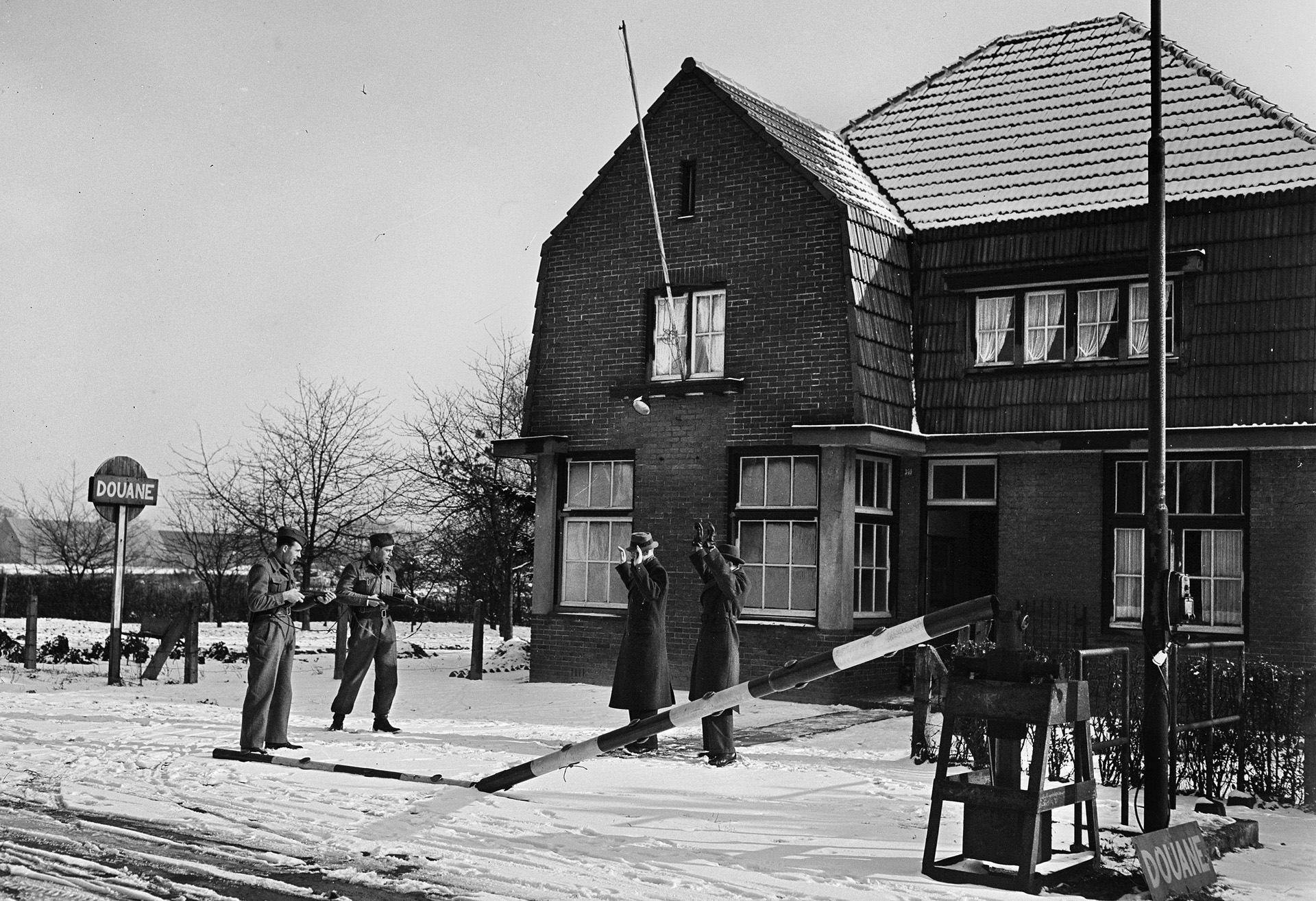
The espionage coup had a huge impact on British intelligence. Best and Stevens confessed fairly freely to the Gestapo. More importantly, for the rest of the war, the British did not trust any feelers put out by any anti-Hitler Germans on the theory that “fool me once, shame on you. Fool me twice, shame on me.”
This gap prevented actual German anti-Hitler plotters from gaining support from British intelligence throughout the war. It also exposed the rickety and amateurish state of British intelligence, particularly MI6, in 1939. After that, the British would use more effective measures … the “Double-Cross System”…new leadership … Bletchley Park.
The final insult came from Schellenberg himself, who took to the radio he had been using to send fake messages to Payne-Best and Stevens, to fire off one final signal to London, as follows: “Communication for any length of time with conceited and silly people is dull. You will understand, therefore, that we are giving it up. You are hereby heartily greeted by your affectionate German opposition. The Gestapo.”
The British responded with cool understatement: “Thank you.”
Next day, Schellenberg and Naujocks returned to Gestapo headquarters on the Prinz Albrecht Strasse in Berlin for the usual post-operation briefing and analysis. Himmler summoned Naujocks to his office for a private and pleasant chat. After that, an SS officer told Naujocks to put on his Class A uniform and be ready to hop into a staff car in 20 minutes, saying, “A very important person wants to see you, Naujocks. Hurry up. He hates people being late!”
The staff car took Naujocks to the Reich Chancellery, where Der Fuehrer himself gave Naujocks a speech, noting that this was the first time the German secret service has been honored this way in its history. The honor was the presentation of the Iron Cross, and Hitler clipped it on Naujocks’ dress uniform personally.
After interrogating Stevens and Payne-Best, Schellenberg prepared SS information briefing packs for the expected invasion of England. He tried to convince the Duke and Duchess of Windsor to go to Germany and become figureheads of a Nazi puppet English government. He oversaw Nazi espionage in Switzerland and Russia. One of his most bizarre initiatives was “Salon Kitty,” a high-class Berlin bordello catering to high-ranking foreign big shots, to learn secrets from their pillow talk. Instead, Schellenberg discovered that top Nazis—including Foreign Minister Joachim von Ribbentrop and his boss, Heydrich—were going there, making the whole operation counter-productive.
Much of Schellenberg’s work failed, anyway. He recruited Russians from POW camps to spy in the Soviet Union—most were killed. He entered into useless rivalries with other top SS men, like Ernst Kaltenbrunner and Heinrich Müller, which only tangled up the Byzantine Nazi world. He spent a chunk of the war trying to convince his mistress, fashion designer Coco Chanel, to spy for the Nazis.
As the war ended, Schellenberg tried to convince Himmler to negotiate an end to the war, and Himmler did so, with Swedish Count Folke Bernadotte. The Allies ignored the sadistic Himmler’s offer to lead Germany. British troops bagged Schellenberg, and the cynical Nazi made a deal: he would testify against his countrymen in return for a small term. He got the deal. His written statement became his memoir, titled The Labyrinth. Historians question its accuracy. He drew six years for his role in shooting Soviet POWs and died in Switzerland from kidney issues in 1952.
The two British spies were treated well in captivity, winding up in 1945 with a collection of “Prominente” prisoners that included repeat British military escapers, Polish generals, relatives of anti-Hitler plotters, and even the former Nazi Economics Minister, Hjalmar Schacht, imprisoned for opposing Hitler. They were held by a group of SS killers as bargaining chips in Austria, but word got out to a nearby German Army unit about the situation, and they disarmed the SS men, enabling one of the “Prominente,” RAF Wing Commander Harry “Wings” Day, to escape to American lines, and GIs saved everyone. Payne-Best and Stevens retired when they returned.
But that was in the future. On November 17, 1939, Nazi Propaganda Minister Joseph Goebbels wrote in his diary about the SS feat of scooping up the British spies Payne-Best and Stevens at Venlo. He sneered, “Our boys made themselves out to be the enemies of the state and so lured this piece of garbage to the border. Now we have the fellow, and he can sweat blood.”
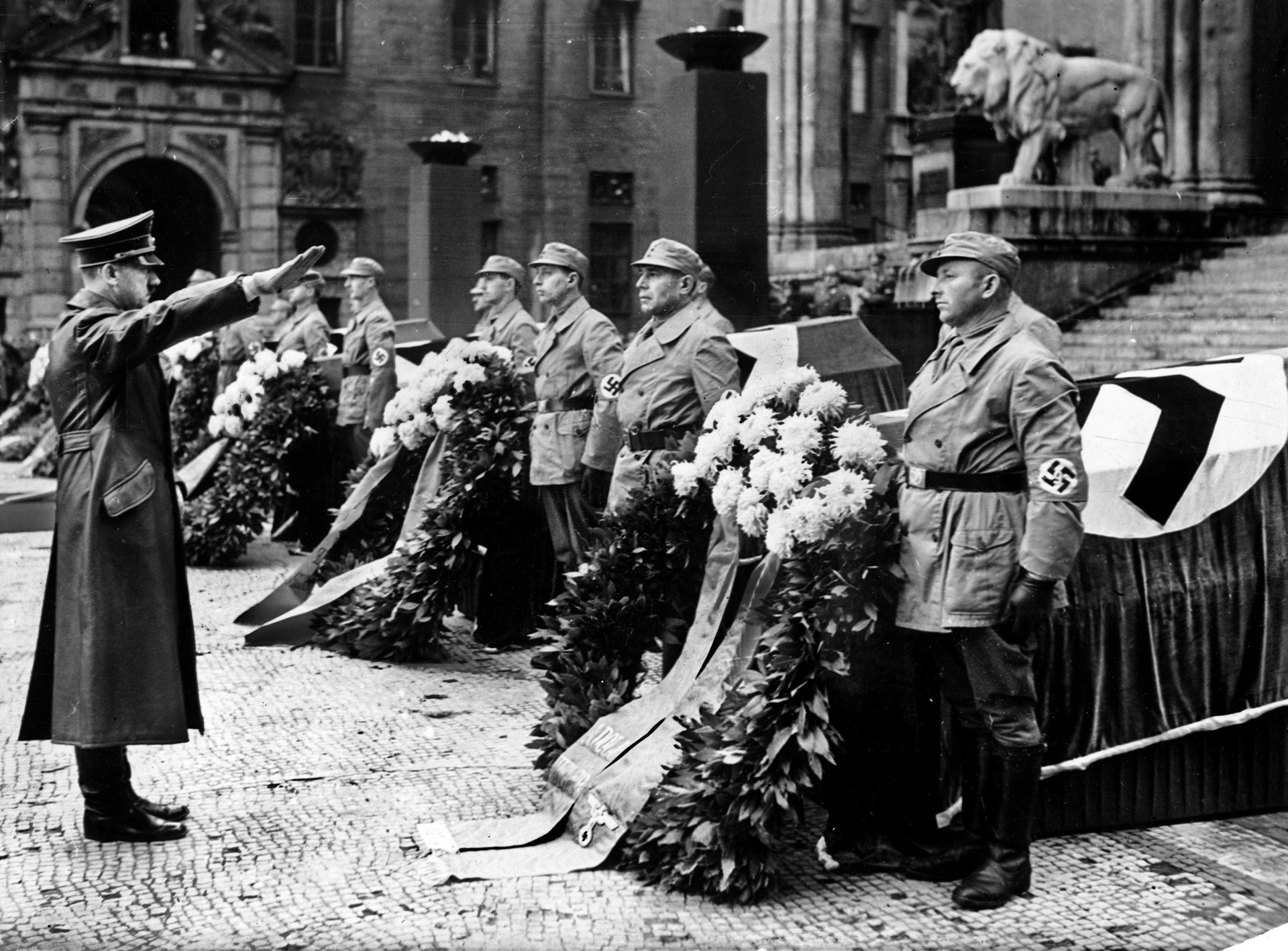
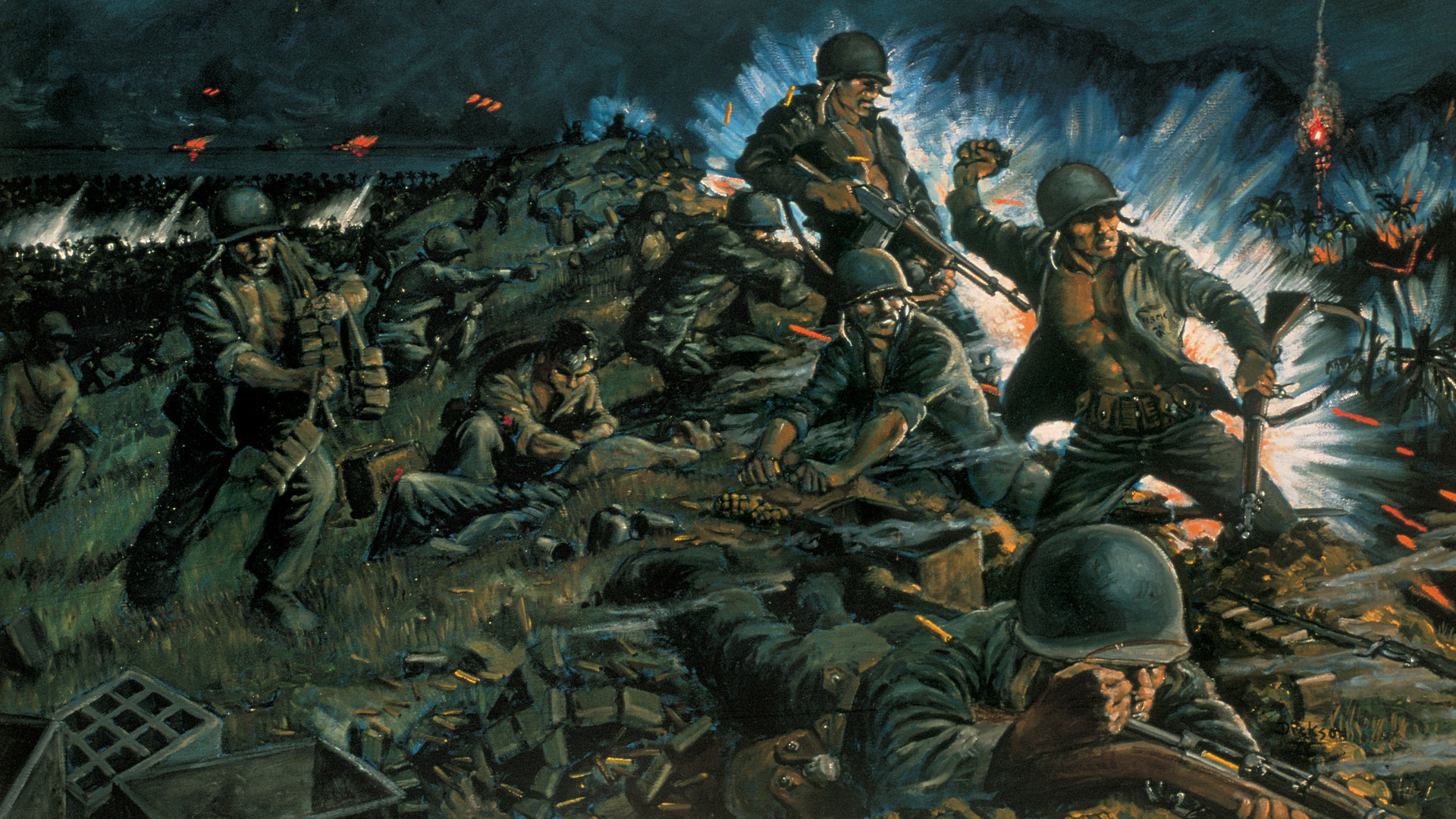
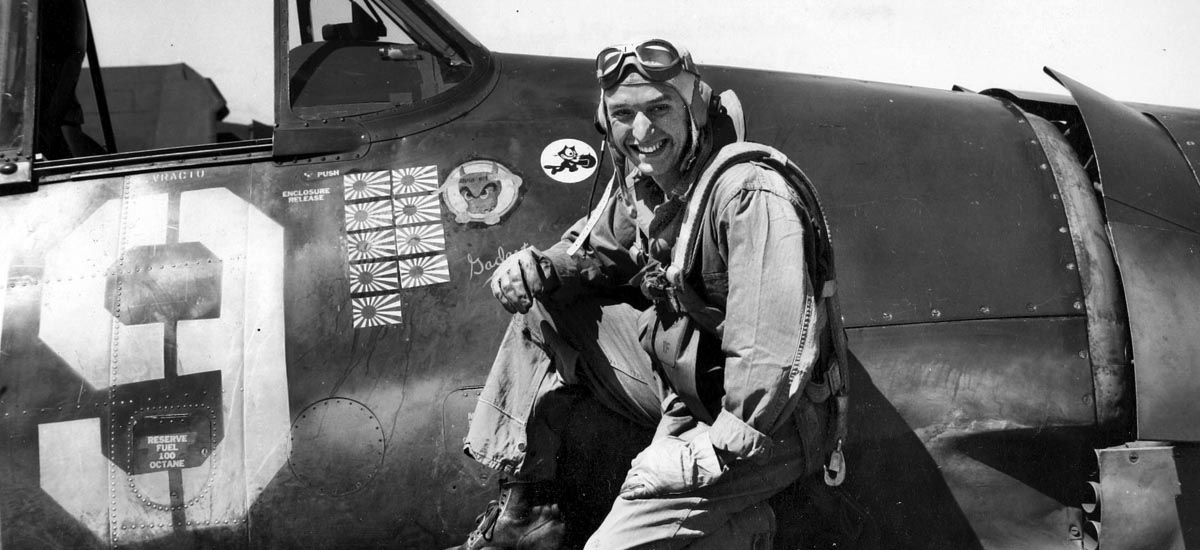
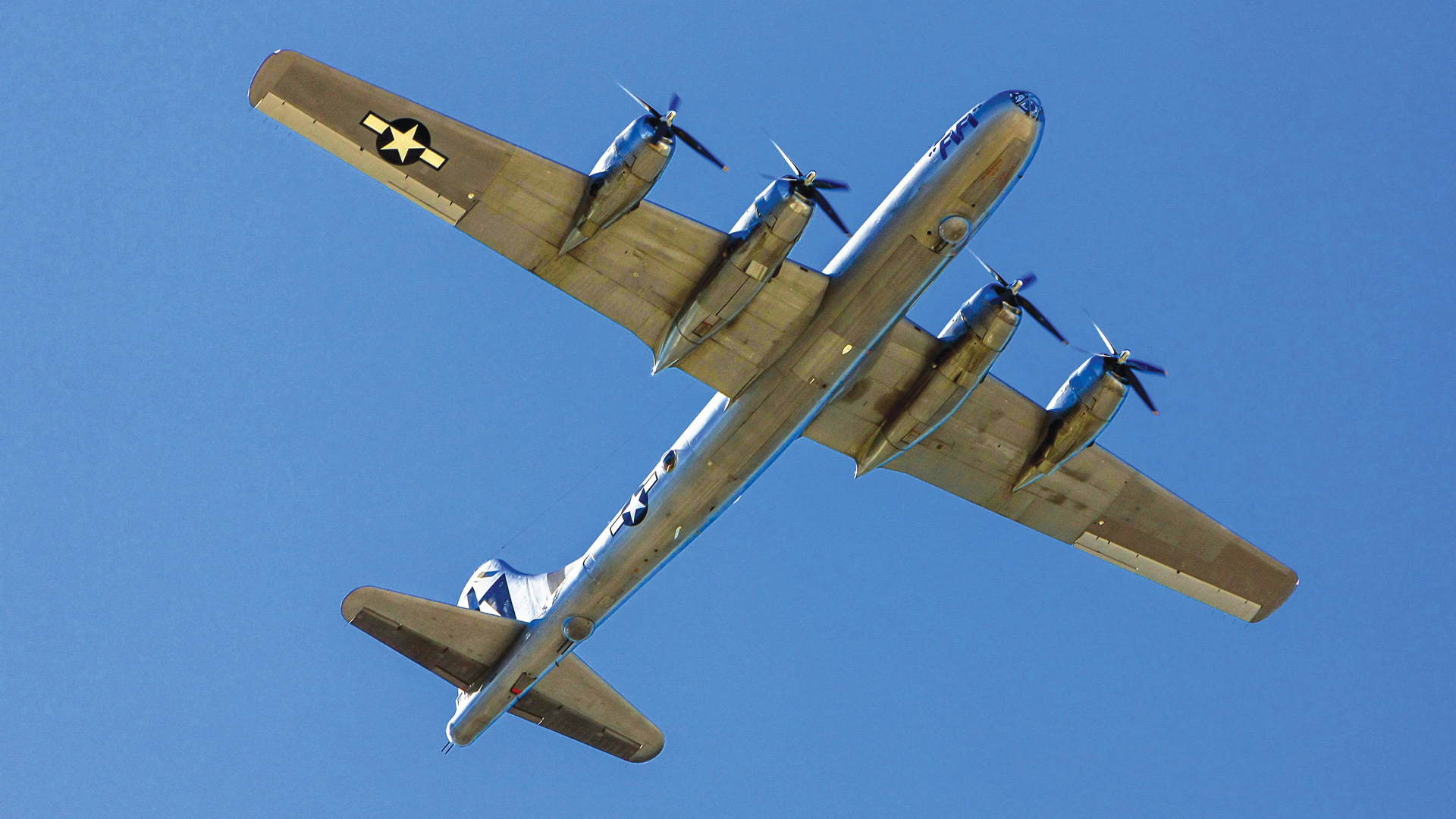
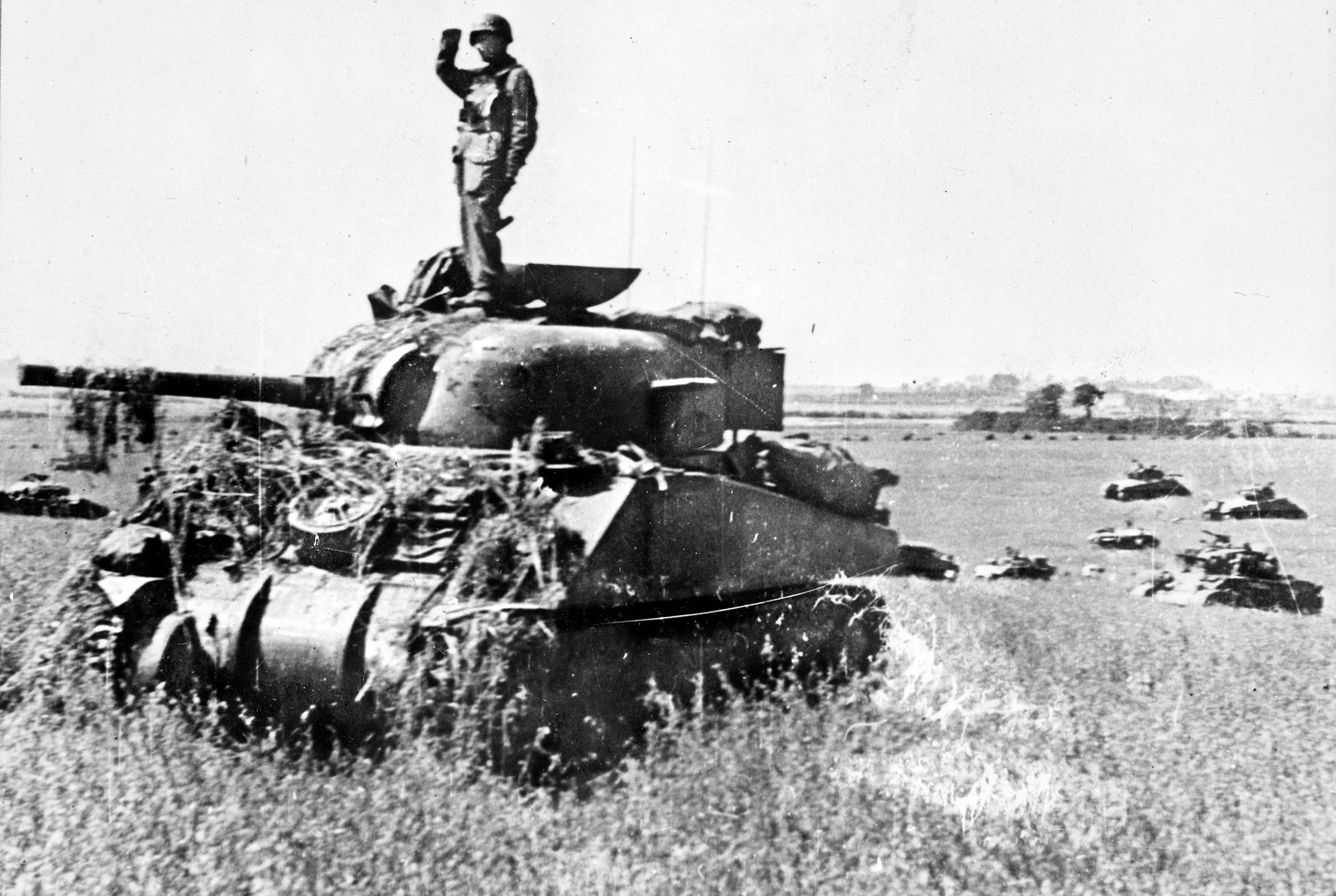
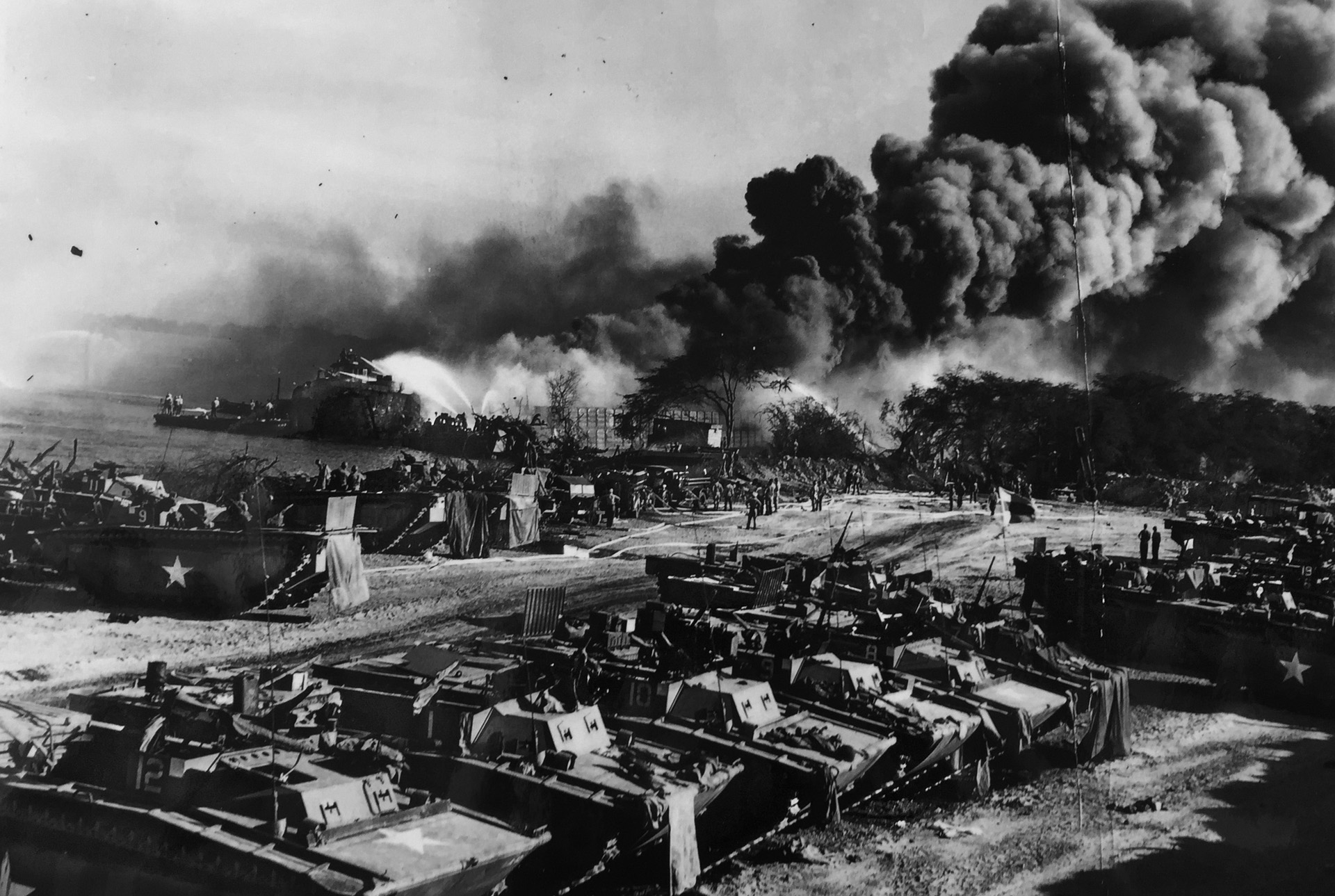
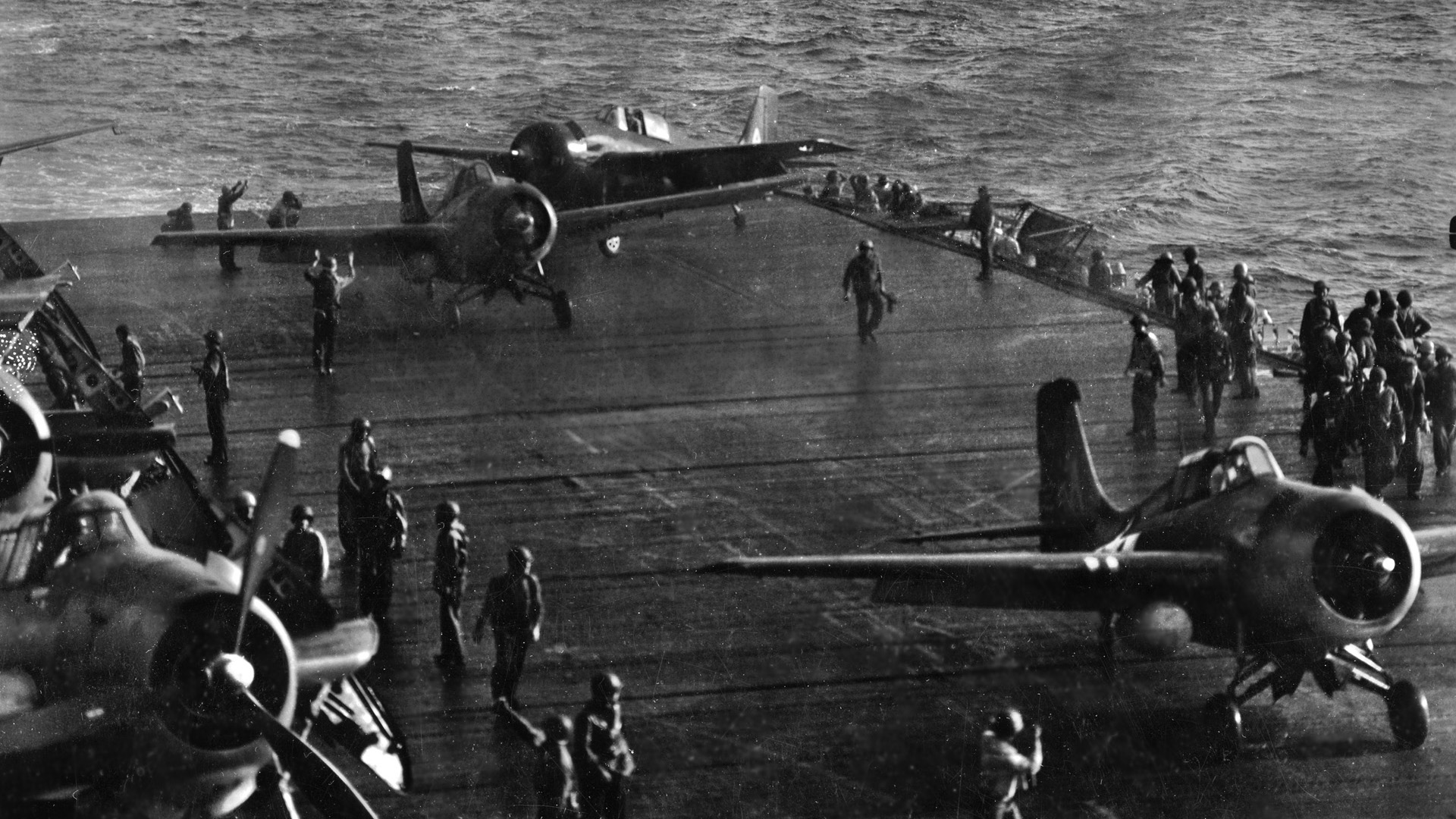
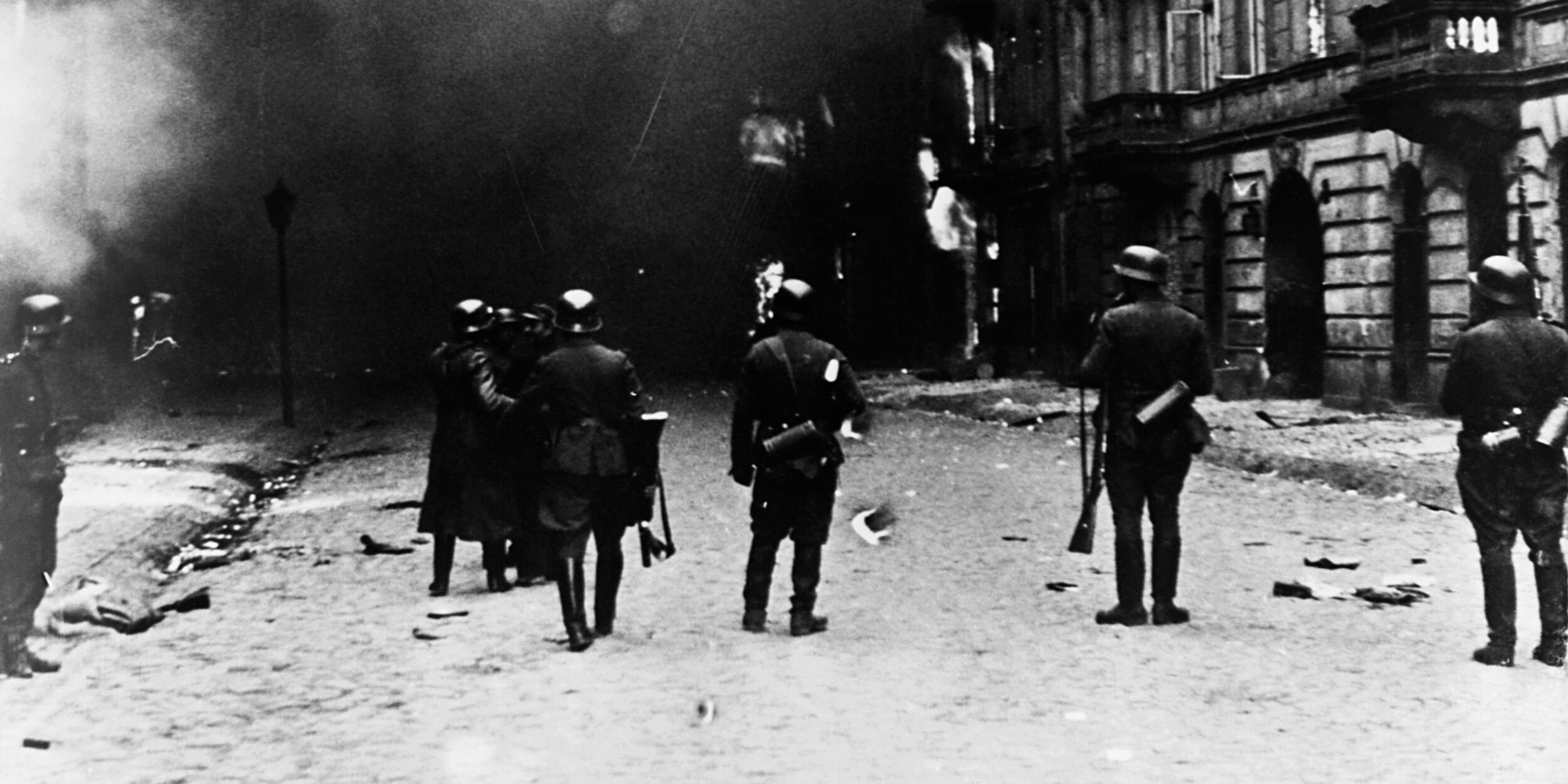
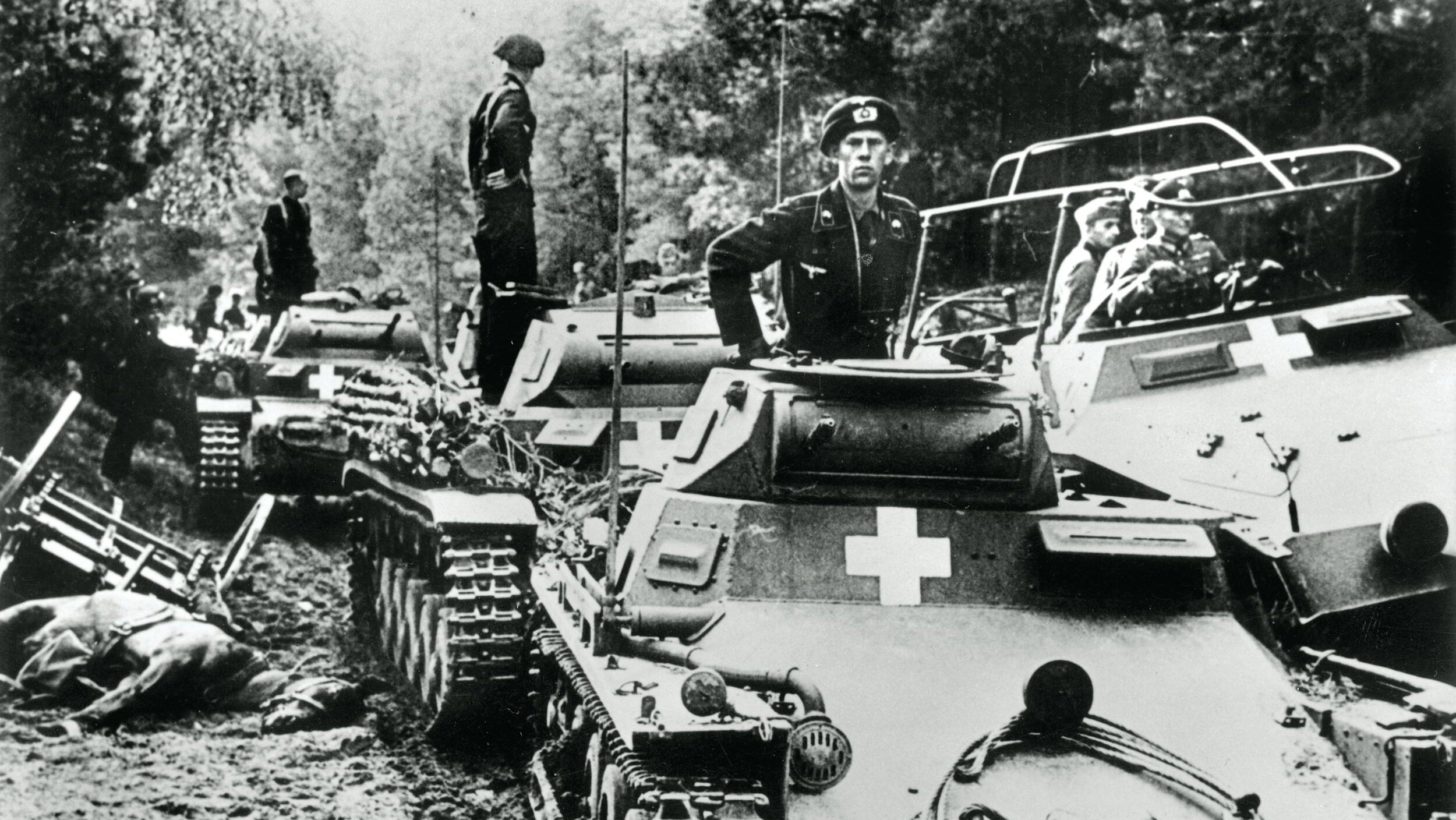
Join The Conversation
Comments
View All Comments